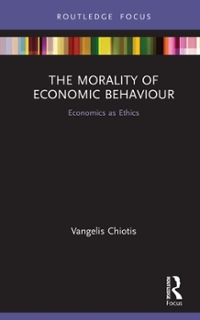Question
Suppose that four people each start with $1,000. Each year, they flip a coin. If they flip heads, they multiply their wealth by eg +
Suppose that four people each start with $1,000. Each year, they flip a coin. If they flip heads, they multiply their wealth by eg+x; if they flip tails, they multiply their wealth by eg-x (where e = 2.71828, the base of the natural logarithm). Here, g represents the average continuous growth rate of the economy, and x represents the magnitude of the effect of chance (i.e., the larger x is, the bigger the difference the coin flip makes).
A.) After two years, what percentage of the total wealth would you expect the richest person to have, on average?
B.) Thomas Piketty's hypothesis is that inequality increases as g declines. Does Piketty's hypothesis hold true in this model?
Step by Step Solution
There are 3 Steps involved in it
Step: 1

Get Instant Access to Expert-Tailored Solutions
See step-by-step solutions with expert insights and AI powered tools for academic success
Step: 2

Step: 3

Ace Your Homework with AI
Get the answers you need in no time with our AI-driven, step-by-step assistance
Get Started


